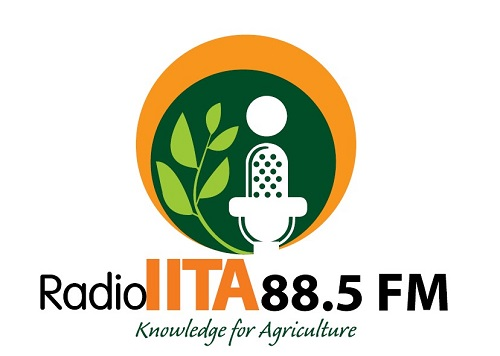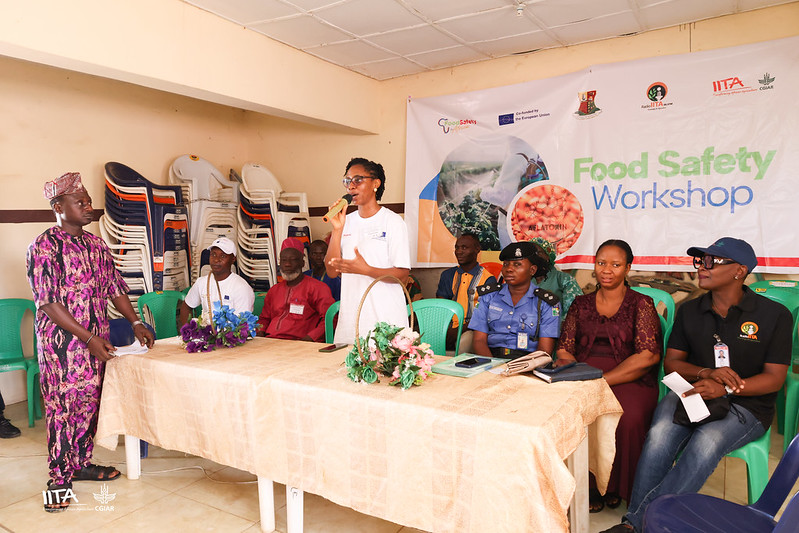Food safety in Nigeria’s informal sector is receiving a much-needed boost through a collaboration between Food Safety for Africa (FS4A) and Radio IITA. Recently, over 60 participants, including farmers, traders, food processors, and transporters, gathered at Akinyele Local Government Headquarters in Moniya, Oyo State, for a critical training session aimed at improving food handling and hygiene practices.
The initiative, supported by the European Union (EU), is part of a broader effort to tackle food safety challenges, particularly in informal markets where contamination risks are high. Honorable Akinwole Akinleye, Chairman of Akinyele Local Government, praised the initiative, emphasizing its importance in protecting public health and strengthening the agricultural economy. “Ensuring food safety is not just about preventing foodborne diseases; it also builds consumer confidence and supports economic growth,” he said.
Experts in food safety and veterinary health led the training, offering practical insights on contamination prevention. Dr. Titilayo Falade, FS4Africa Project Coordinator, highlighted essential best practices such as drying crops on clean surfaces, using hermetic storage containers like PICS bags, and avoiding direct pesticide application to food. “Simple steps can make a big difference in reducing food contamination and ensuring safer consumption,” she noted.
Dr. Ibikunle Akanbi, a veterinary specialist from the Oyo State Ministry of Agriculture and Rural Development, focused on livestock health and safe meat handling. “The safety of our food starts with the health of our animals. Proper veterinary care, feeding, and hygienic meat processing are crucial to delivering safe and nutritious food,” he explained.
Participants actively engaged in discussions on challenges like pesticide use, limited refrigeration in rural areas, and proper meat-handling techniques. The training provided practical solutions, tailored to the realities of Nigeria’s informal food sector.
Dajie Odok, Radio IITA lead, highlighted the station’s role in promoting food safety awareness. “Radio IITA has long been a bridge between agricultural research and farmers. This collaboration allows us to extend vital food safety knowledge to grassroots actors,” she stated.
Attendees expressed their commitment to applying the new knowledge in their businesses. Muritala, a butcher, vowed to adopt better hygiene practices, while Ajoke Onifade, a food processor, pledged to improve grain storage methods. Similarly, food transporter Adesola Adesokan acknowledged the need for covered vehicles to prevent contamination.
As these participants return to their communities, they will serve as knowledge ambassadors, sharing best practices with other stakeholders. With EU support, this initiative is setting new standards in food safety awareness, fostering a healthier and more resilient food system in Nigeria’s informal sector.
Contributed by Bamise Dada



